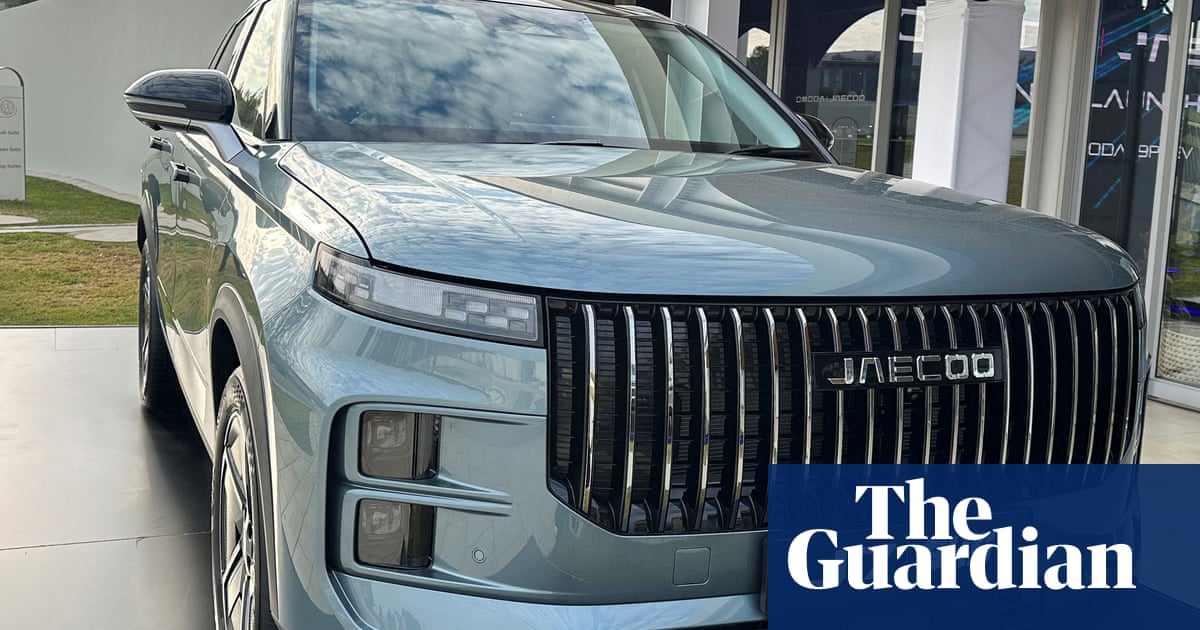The Chinese carmaker Chery Auto is considering building its second European factory in Britain.
After launching two brands, Omoda and Jaecoo, in the UK in September, Chery’s UK director, Victor Zhang, said the company is making inroads in the British market with the appetite growing for Chinese cars.
He was speaking at the annual conference of the Society of Motor Manufacturers and Traders, where the business secretary, Jonathan Reynolds, admitted that there was “still a lot of work” to do in negotiating away all of Donald Trump’s tariffs against the British automotive, steel and food and drinks sectors.
Zhang told the event in London on Tuesday that the company was “actively considering” building a second plant in the UK as part of a “localisation” strategy.
“If we, as a brand, want to be here, to be committed, to be here, [manufacturing] is something that we should do,” he said. “This is the open topic. Everything is on the table. We are considering, we are talking with the relevant parties.”
Zhang said the company had taken 2% of the UK electric vehicle market since the company launched in 75 showrooms in the UK in September, and the curiosity of British drivers was translating into sales – including what he claimed was a “super” hybrid car with capacity for 90 miles on drive-generated energy.
“The UK market is quite open. 40% of customers say they are willing to consider Chinese brands,” he said.
Chinese manufacturers are intensifying their export efforts in the UK and in the EU in the face of prohibitive tariffs imposed by Donald Trump in the US.
Geely Auto has invested more than£3bn in the British sports car maker Lotus, and another Chinese EV battery firm, EVE Energy, is intalks to invest more than £1bnto build a giant new factory on the outskirts ofCoventry.
They are also investing in factories in the EU to avoid tariffs imposed on EV imports by Brussels last summer.
Rival Chinese firm BYD is building its first assembly plant in the EU in Hungary, and Omoda has sealed a joint venture plant with Spanish carmaker Ebro, south of Barcelona.
Sign up toBusiness Today
Get set for the working day – we'll point you to all the business news and analysis you need every morning
after newsletter promotion
The UK’s trade deal with the US comes into force on Monday and will include a reduction in tariffs from 27.5% to 10%, giving a competitive advantage over the EU, which is still facing 25% tariffs on cars sold to the US. However, it is still four times the tariff rate on car imports from the UK that applied before Trump’s “liberation day” in April.
A 10% tariff on general imports from the UK still applies, as does a 25% tariff on UK steel. Reynolds has said he is “fighting” to get these eliminated.
“I’m fighting quite hard to make sure we are included [in a steel tariff exemption],” he said. “I believe it’s possible [to strike a deal] on the reciprocal tariffs, the so-called 10%, so there’s still a lot of work going on on that.”
Sherard Cowper-Coles, chair of the China-Britain business council and a former diplomat, told the conference that the UK was stepping up its engagement withChinaand Chinese investors were actively looking for opportunities in the UK “because of Trump”.He claimed that the UK national security adviser, Jonathan Powell, would “visit China in the middle of next month to prepare for a visit by the prime minister” and that Reynolds would go to the joint economic and trade commission in September.
